Digital Poster
Brain Analysis
ISMRM & ISMRT Annual Meeting & Exhibition • 10-15 May 2025 • Honolulu, Hawai'i

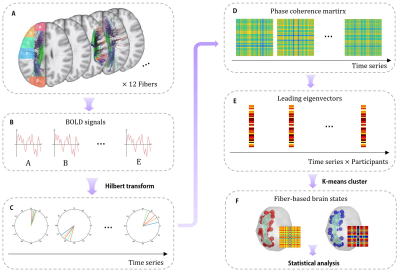 |
Computer Number: 65
3406. Fiber-based
Leading Eigenvector Dynamic Analysis (FLEiDA) of Brain States
Q. Shi, X. Deng, F. Zong
Beijing University of Posts and Telecommunications, Beijing, China
Impact: By employing FLEiDA analysis, we can identify
distinct connectivity patterns within fiber-connected
regions, thereby elucidating mechanisms of brain function
and offering novel biomarkers for various diseases.
|
|
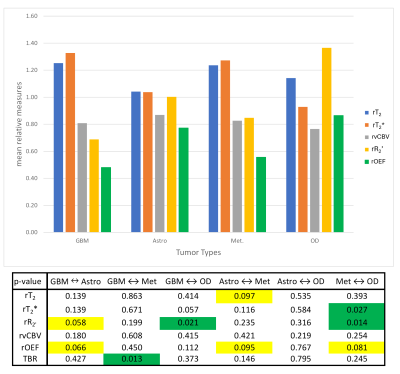 |
Computer Number: 66
3407. Brain
tumour differentiation capability of GE-SE EPIK derived
MR-parameter combinations
F. Küppers, S. D. Yun, M. Kassem, C. Filss, G. Stoffels, F.
Mottaghy, M. E. Kooi, K-J Langen, P. Lohmann, N. J. Shah
Forschungszentrum Jülich, Jülich, Germany
Impact: 10-echo GE-SE EPIK provides fast access to
multiple MR-parameters (T2,
T2*,
R2’,
vCBV, OEF). Combinations of GE-SE EPIK-derived MR parameters
improve differentiation between brain tumour types, with the
greatest potential achieved by taking the difference between
each parameter pair.
|
|
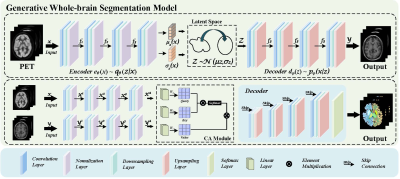 |
Computer Number: 67
3408. A
Generative Whole-Brain Segmentation approach for PET/MR imaging
via deep learning
W. Li, Z. Huang, H. Tang, Y. Wu, Y. Gao, J. Yuan, Y. Yang,
Y. Zhang, N. Zhang, H. Zheng, D. Liang, M. Wang, Z. Hu
Lauterbur Research Center for Biomedical Imaging, Shenzhen Institute of Advanced Technology, Chinese Academy of Sciences, Shenzhen 518055, China., shenzhen, China
Impact: This study enables precise brain PET
segmentation without MR data, benefiting clinical
diagnostics and neuroscience by advancing our understanding
of brain metabolism and activity, potentially leading to new
therapies and improved patient outcomes.
|
|
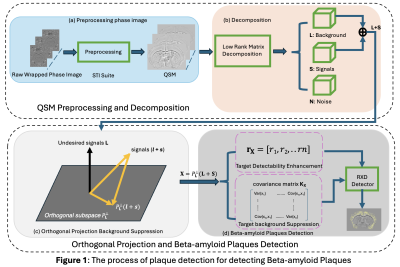 |
Computer Number: 68
3409. Whole
Mouse Beta-amyloid Plaque Loading Map via Low Rank Based
Orthogonal Projection and Spatial-spectrum Detector Using
High-resolution Quantitative Susceptibility Mapping
J. Chen, X. Han, Z. Liu, J. Mubashir, N. Wang
UT southwestern Medical Center, dallas, United States
Impact: A 3D whole-brain image of Aβ plaques has the
potential to serve as an imaging model for accurate and
comprehensive assessment of Alzheimer's disease progression
at different stages.
|
|
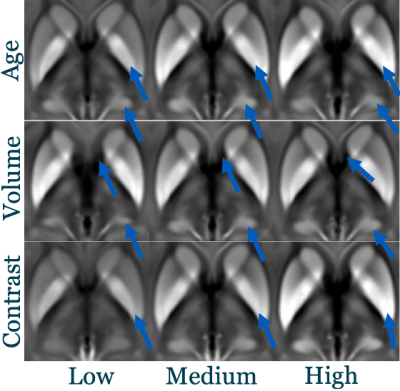 |
Computer Number: 69
3410. Bi-parametric
Joint Label Fusion: An Improved Segmentation Tool for Deep Gray
Matter in QSM
F. Salman, K. Thomas, A. Adegbemigun, N. Bergsland, M.
Dwyer, R. Zivadinov, F. Schweser
Buffalo Neuroimaging Analysis Center, Department of Neurology at the Jacobs School of Medicine and Biomedical Sciences, University at Buffalo, The State University of New York, Buffalo, United States
Impact: B-JLF provides reliable DGM segmentation,
enhancing quantitative accuracy in neurodegenerative
studies. The tool and atlases are publicly accessible,
supporting broader neuroimaging applications.
|
|
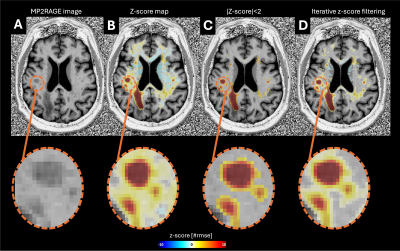 |
Computer Number: 70
3411. Optimized
pipeline for voxel-wise detection of T1 relaxation time
abnormalities
A. Burrus, G. F. Piredda, G. Bonanno, L. Bacha, T. Di Noto,
T. Kober, T. Hilbert, P. Radojewski, B. Maréchal, V. Ravano
Siemens Healthineers International AG, Lausanne, Switzerland
Impact: Improved spatial alignment and a novel iterative
noise filtering technique enhanced efficiency, accuracy and
interpretability of a pipeline characterizing voxel-wise
abnormalities of quantitative T1 relaxation
times, paving the way for clinical adoption of pathology
characterization with single-subject T1 deviations.
|
|
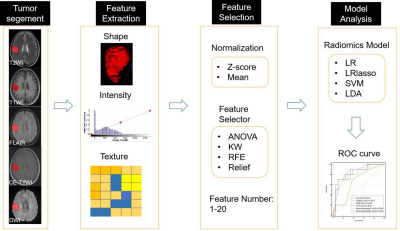 |
Computer Number: 71
3412. Multimodal
MRI radiomics for prediction of 1p/19q co-deletion status in low
grade gliomas
M. Lu, Y. Xu, Z. Wen
Zhujiang Hospital, Southern Medical University, Guangzhou, China
Impact: This study underscores a radiomics model based
on multimodal MRI (T2WI, T1WI, FLAIR, CE-T1WI, and DWI) to
non-invasively predict the 1p/19q codeletion status in
diffuse low-grade gliomas pre-surgery. The model provides
reliable evidence for personalized treatment of patients.
|
|
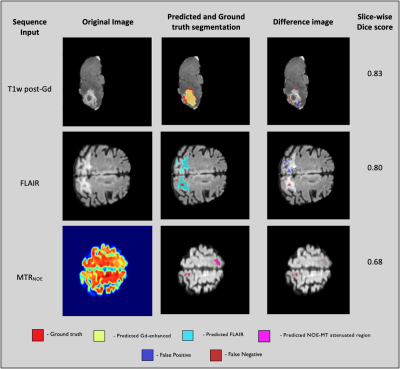 |
Computer Number: 72
3413. Automatic
Segmentation of Brain Metastasis Sub-Regions using MTRNOE
Imaging for Enhanced Tumour Boundary Definition
C. Dubroy-McArdle, W. Lam, G. Stanisz, D. Sussman
Toronto Metropolitan University, Toronto, Canada
Impact: Introduces the novel Nuclear Overhauser
Magnetization Transfer (NOE-MT) sub-region segmentation,
providing metabolic and microstructural tumour insights. An
automatic model that accurately delineates brain metastasis
sub-regions, enhancing boundary definition and reducing
observer variability, with implications for improved
treatment planning and monitoring.
|
|
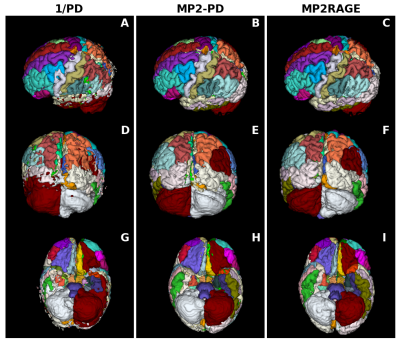 |
Computer Number: 73
3414. Investigation
of automated brain region segmentation based on proton density
maps
J. Schmid, M. Capiglioni, N. Plähn, J. Bastiaansen
Interventional and Pediatric Radiology (DIPR), Bern, Switzerland
Impact: Phase-cycled bSSFP-derived PD maps can be used
for brain segmentation. This approach is independent of
magnetic field strength, enabling more consistent contrast
images for automatic brain segmentation tools.
|
|
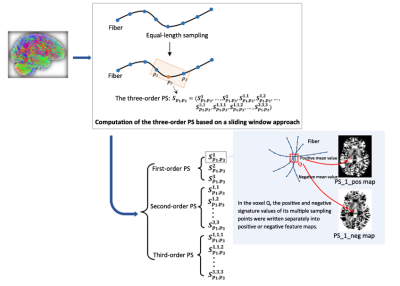 |
Computer Number: 74
3415. A
Novel Path Signature-Based Metric for Quantifying Morphological
Characteristics of White Matter Fibers
J. Qin, W. Dong, H. Ni, Z. Yao, Q. Lu*, Y. Wu
Nanjing University of Science and Technology, Nanjing, China
Impact: The results demonstrate that PS features are
more sensitive in capturing morphological differences
between male and female WM fibers than FA. PS features can
be used to characterize the multi-dimensional morphological
features of brain WM fibers.
|
|
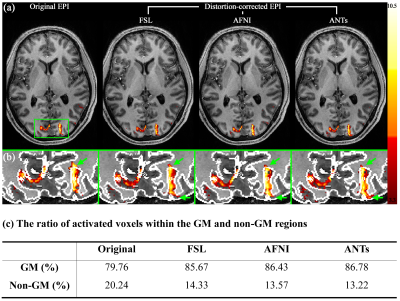 |
Computer Number: 75
3416. Comparative
Performance Assessment of EPI Distortion-Correction Software for
Enhanced Accuracy in Submillimetre fMRI at 7T
S. D. Yun, J. Lee, N. J. Shah
Forschungszentrum Juelich, Juelich, Germany
Impact: This study presents comparative performance
assessments of EPI distortion correction software packages
(FSL, AFNI, and ANTs) for submillimetre fMRI at 7T. While
all methods effectively reduced distortions, ANTs
demonstrated the least spatial resolution degradation and
higher accuracy in functional mapping.
|
|
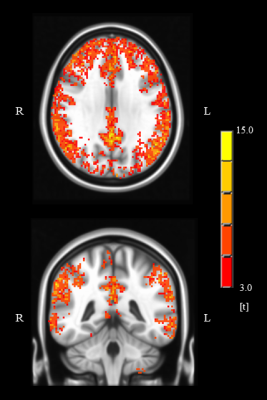 |
Computer Number: 76
3417. Impact
of multi-echo fMRI on the estimate of Integrated Local
Correlation
G. Bosello, F. Tomaiuolo, G. Ponetti, R. Franciotti, M.
Gajdoš, M. Mikl, V. Onofrj, P. Chiacchiaretta, M. Perrucci,
I. Rektorova, A. Ferretti
University 'G. d'Annunzio' of Chieti-Pescara, Pescara, Italy
Impact: The ME approach enhances local coherence in
resting-state fMRI signals from gray matter, aligning with
the known reduced thermal noise and optimized BOLD
sensitivity of multi-echo data. This improved sensitivity
could enable finer comparisons between conditions/groups,
especially in clinical studies.
|
|
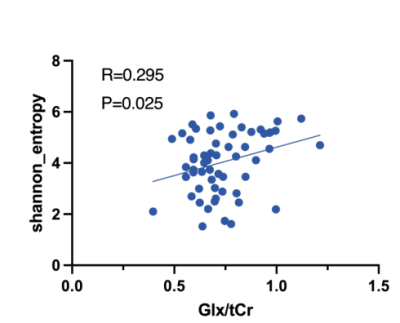 |
Computer Number: 77
3418. Study
on the correlation between alterations in brain metabolites and
gut microbiota in patients with IBD
j. wang, G. Liu, K. Ai, J. Zhang
The Second Hospital & Clinical Medical School, Lanzhou University, Lanzhou, China
Impact: This study establishes a foundation for
understanding the interaction mechanisms between gut
microbiota and the central nervous system, offering valuable
insights into the neural underpinnings of IBD-associated
syndromes.
|
|
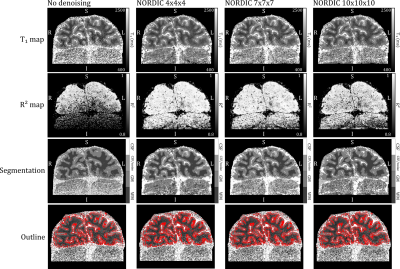 |
Computer Number: 78
3419. Applying
NORDIC denoising to high-resolution T1-mapping for structural
layer measures
D. Marsh, M. Asghar, A. Lenartowicz, K. Mullinger, S.
Francis
University of Nottingham, Nottingham, United Kingdom
Impact:
NORDIC denoising improves quantitative high-resolution brain T1-mapping for structural measures collected alongside layer fMRI and is beneficial for segmentation of data acquired on surface receive coils. It is important to consider smoothing introduced by smaller NORDIC patch sizes. |
|
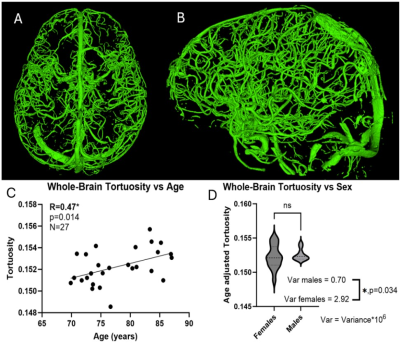 |
Computer Number: 79
3420. Brain
Artery Tortuosity Analysis Using 7 Tesla MRI Time of Flight
Images
T. Florido Campos de Souza, T. Santini, C. Andreescu, M.
Ganguli, T. Ibrahim
University of Pittsburgh, Pittsburgh, United States
Impact: This study establishes brain artery tortuosity
as a promising biomarker for age-related vascular health.
Sex-specific variance, underscores the potential for
personalized vascular assessments, supporting tailored
health interventions in aging populations.
|
|
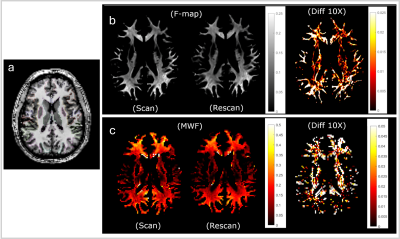 |
Computer Number: 80
3421. Region-based
and voxel-wise repeatability analysis of quantitative MT and MWF
maps in brain white matter at 7T
S. N. Adnani, T. Denney, A. Bashir
Auburn University Neuroimaging Center, Auburn, United States
Impact:
Accurate quantitative measures of physiological parameters are important to monitor brain structure and longitudinal clinical trials. We established protocols for qMT and MWF using clinically available pulse sequences and demonstrated good reproducibility for future multi-site clinical studies. |
The International Society for Magnetic Resonance in Medicine is accredited by the Accreditation Council for Continuing Medical Education to provide continuing medical education for physicians.